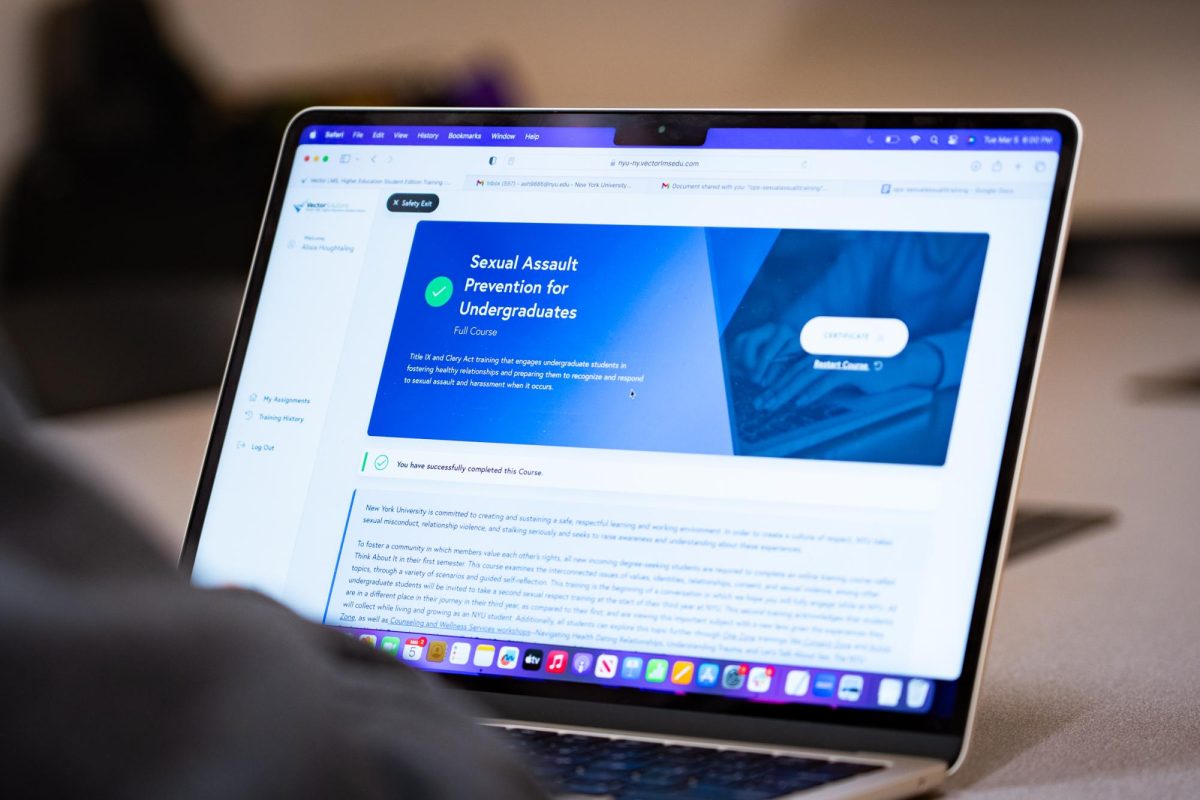Graduating from a high school with abstinence-focused sex education, I felt ill-prepared to navigate the complexities of consent and healthy relationships when I entered college. The shortcomings of sex education across schools in the United States are glaring, with vast disparities between approaches and information students learn. While NYU provides some assistance in this area — it offers sexual respect training — the university needs to go further to address variations in what students already know.
While some students benefit from comprehensive and inclusive instruction prior to attending college, others are hindered by courses that are rooted in stigmatization and misinformation. As students transition to college, the need for comprehensive sex education that covers topics like identity, fostering healthy relationships, promoting clear communication, safe sex practices and accessing sexual and reproductive health care is vital. These discrepancies between students’ knowledge become more of an issue in college, where many students are entering the world of sex and relationships for the first time.
NYU’s current training program aims to “maintain a safe and aware campus community.” However, it falls short of this goal due to its generalized approach. The current training is online, and doesn’t ensure that the student is actually watching the videos assigned or engaging in the training scenarios. It is easy enough for a student to coast through the training without having to soak in any information. While NYU also requires undergraduates to do a second training their third year, the program suffers from similar issues.
The training fails to address the nuanced realities that college students encounter. By relying on simplistic examples and overlooking the intellectual readiness of college students, the training risks disengagement and renders itself ineffective.
To address these shortcomings, NYU could implement a pre-assessment survey to gauge students’ understanding of key concepts such as consent and safe sex practices. Based on the assessment results, the university could tailor the training materials to better meet the needs of individual students. For example, students who demonstrate a strong understanding of foundational concepts could be provided with more advanced training modules focusing on nuanced topics. Meanwhile, students who exhibit gaps in their understanding could receive additional support through targeted workshops or one-on-one counseling sessions, working their way up to that advanced level.
Rather than offer video training, NYU should offer programs over Zoom and in-person with small groups of students. This approach would allow for deeper discussions and adaptability to students’ needs. A more engaging and personalized approach not only addresses the shortcomings of one-size-fits-all training programs, but also empowers students to actively participate in discourse around relationships and intimacy.
However, improving training alone is not sufficient. NYU must also invest in more intensive rehabilitative resources, communicate consequences for inappropriate behavior and allocate more of its budget toward sex education and counseling services. These measures are vital for cultivating a safer, more supportive environment for students.
Implementing these solutions may require time, money and effort, but they are an essential step for preventing sexual violence and promoting healthy relationships on campus. While something is better than nothing, the far-reaching impact of sex education on how students navigate college life should push NYU to make it more of a priority.
WSN’s Opinion section strives to publish ideas worth discussing. The views presented in the Opinion section are solely the views of the writer.
Contact Mehr Kotval at [email protected].


























































































































































